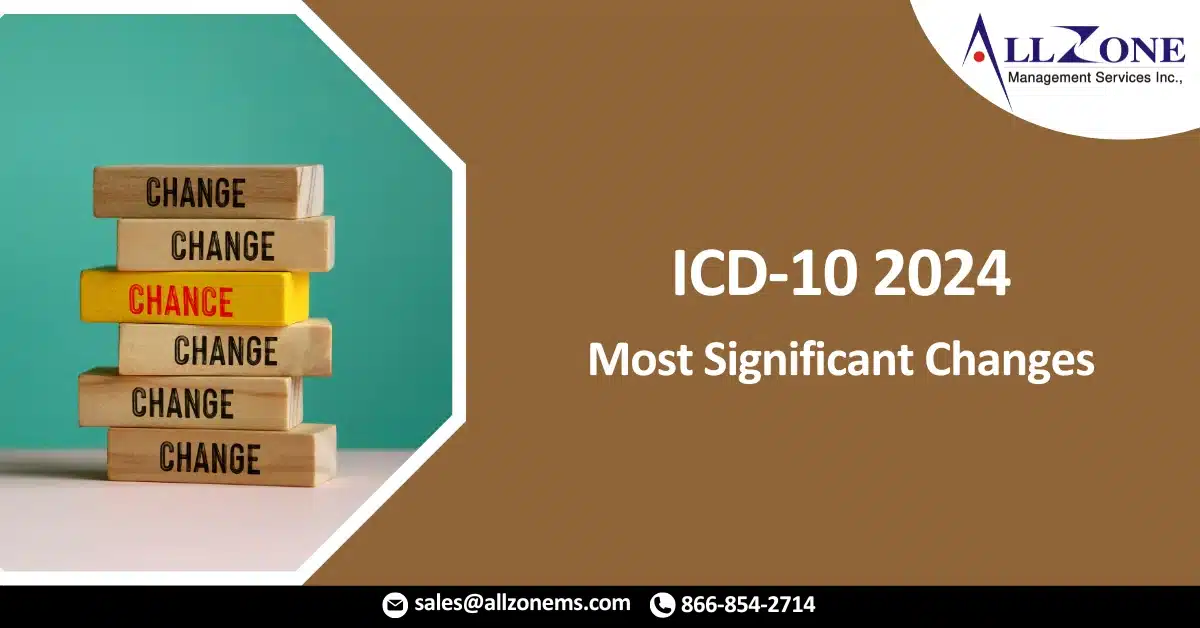Greetings and welcome to the latest edition of our healthcare coding newsletter!
In order for us to remain abreast of the ever-evolving landscape of medical documentation, we must stay up-to-date with updates to the International Classification of Diseases, Tenth Revision (ICD-10) from time to time.
In this article, we will take a closer look at some of the most significant improvements introduced in the 2024 edition.
1. Technology and procedures that are emerging:
ICD-10 2024 reflects the continuous advancement of medical practices. New codes are expected for:
-
-
- Telehealth services: Virtual consultations are on the rise, resulting in the need for specific codes that capture the complexity and nature of these encounters.
- Minimally invasive procedures:There is no doubt that as minimally invasive techniques gain traction, new codes will ensure that these procedures are properly documented.
- Gene therapies:Gene therapy has become one of the most important aspects of medicine recently and requires dedicated codes for each type of gene therapy application
-
2. Enhancing the specificity of existing conditions:
This update introduces more granular coding for several prevalent conditions in the year 2024. Among these are the following:
-
-
- Mental health diagnoses:It is expected that more specific codes will be available for a wider range of mental health conditions, which will help in making a more precise diagnosis
- Cancer staging:There is now a wide range of codes for a variety of cancer stages, enabling more accurate reporting on cancers in cancer registries as a result of the revision.
- Chronic conditions:Specifically, the update provides more specific codes for conditions like diabetes and chronic obstructive pulmonary disease (COPD), as well as the severity and associated complications of those conditions.
-
3. Emphasis on Social Determinants of Health (SDOH):
The 2024 ICD-10 incorporates new codes to capture SDOH information as part of its recognition of the impact of social factors on health outcomes. By documenting factors like housing instability, food insecurity, and lack of social support, healthcare providers are able to possibly improve patient care and target interventions when they are necessary.
4. Streamlined Coding Practices:
In order to streamline coding practices in the 2024 revision, a number of measures will be adopted
-
-
- Deletion of redundant codes:In order to simplify the Medical coding process, obsolete or unnecessary codes will be removed in order to simplify the process of coding.
- Improved code grouping:It is planned that codes will be regrouped based on similar characteristics, making it easier for the user to navigate.
- Clarification of coding guidelines:There is an update to the guidelines which will provide specific instructions on how to select codes, which will reduce ambiguity and improve the accuracy of coding instructions.
-
5. Staying Prepared for the Transition:
Healthcare providers and coders are urged to begin familiarizing themselves with the upcoming changes even though the official release date for ICD-10 2024 has not been announced. The following are some tips you might find useful:
-
-
- Review official resources:It will be possible to get a detailed explanation of the new codes and guidelines by visiting the website of the Centers for Medicare & Medicaid Services (CMS).
- Invest in training:Coders will be able to adapt to the revised code set with the help of educational resources and training programs that will be made available.
- Update coding software:Keep your coding software up-to-date with the latest ICD-10 2024 codes in order to maintain seamless documentation for your patient records.
-
Health care professionals can ensure a smooth transition to ICD-10 2024 by staying informed and proactively preparing in advance. In order to ensure proper reimbursement, to analyze healthcare data, and to ultimately improve patient care, it is vital to code medical records accurately.
As we approach the official implementation of ICD-10 in 2024, we encourage you to revisit this blog regularly for updated information as we move closer to the deadline.
If, however, you have any specific questions regarding the upcoming changes, please do not hesitate to contact us. We will be happy to assist you.

